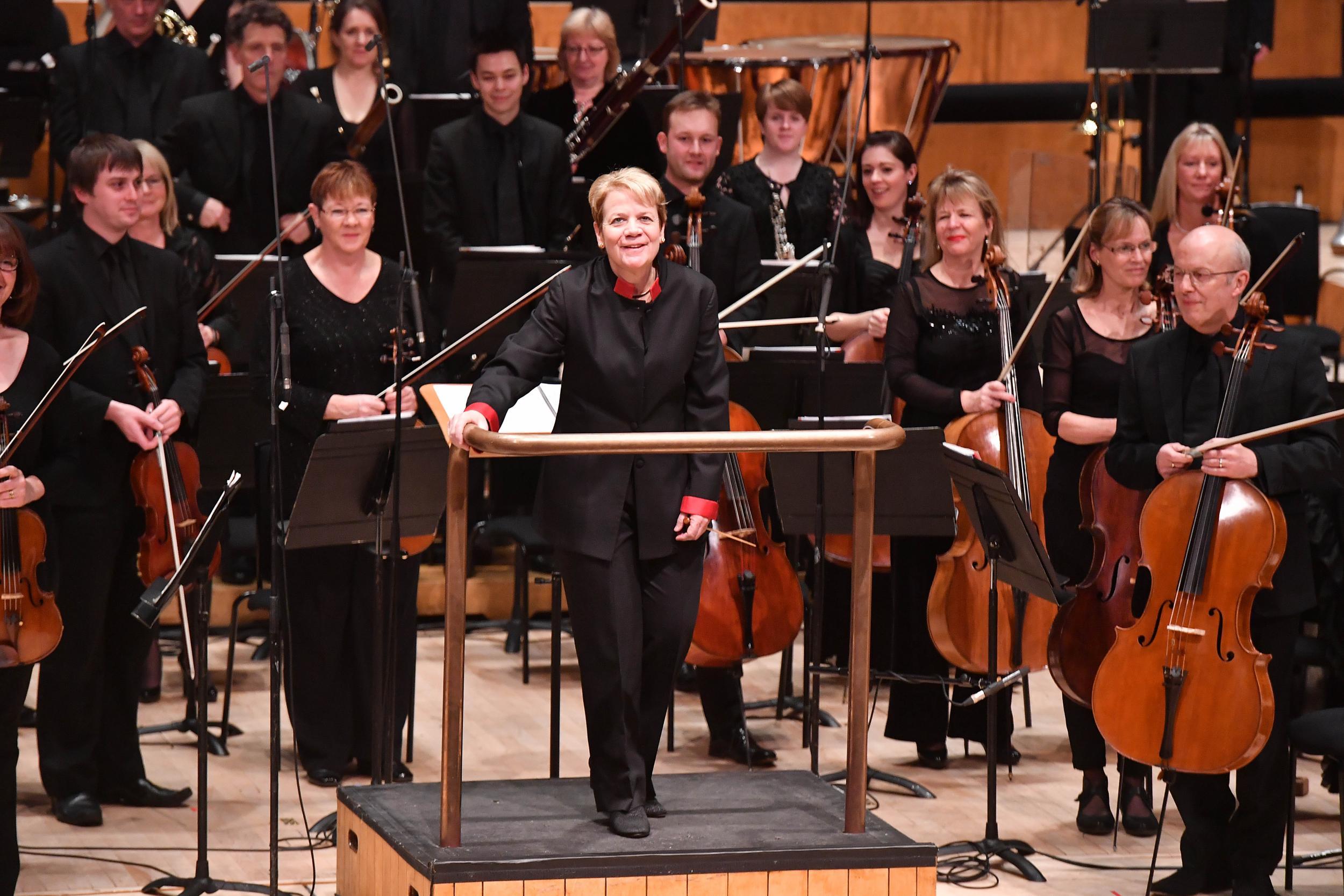Total Immersion: Philip Glass at 80, Barbican, London, review: Conductor Marin Alsop, herself part of the Glass Ensemble during the Seventies, kept an iron grip on the driving inner pulse throughout
To celebrate the minimalist composer Philip Glass’s 80th birthday, the Barbican’s Total Immersion Day culminated in the UK premiere of his ‘Double Concerto for Two Pianos and Orchestra’, performed by the Labèque sisters and the BBC Symphony Orchestra

Love him or loathe him, Philip Glass’s impact is non-negotiable, permeating our modern soundscape at every turn. The BBC honoured his 80th birthday by devoting the entirety of Radio 3’s overnight on Saturday output to his music, and with a Total Immersion Day at the Barbican, culminating in the UK premiere of his 2014 Double Concerto for Two Pianos and Orchestra, played by Katia and Marielle Labèque (for whom it was written) with BBC Symphony Orchestra.
Early Glass, with its addictively mesmeric repetitions and enticing harmonic shifts, nailed a sure-fire formula for success: music at once in constant flux and in stasis. As time has gone on, his use of an increasingly conventional and romantic musical vocabulary leaves a sense of very flabby progress towards a would-be meaningful end-point. For this concerto, old tropes were trotted out (initially attractive rocking figures which build to a break) and the contribution from an enlarged percussion section seemed strangely limited to a kind of oompah.
More rewarding was the opening Akhnaten overture, and concluding Itaipú, a symphonic portrait for chorus and orchestra, about a dam in Brazil. This was evoked in all its serene natural beauty and terrible man-made grandeur, the same clash that prompted Glass’s groundbreaking score to the seminal 1982 film Koyaanisqatsi: Life Out of Balance (also shown on Saturday). Conductor Marin Alsop – herself part of the Glass Ensemble during the Seventies – kept an iron grip on the driving inner pulse throughout.
Subscribe to Independent Premium to bookmark this article
Want to bookmark your favourite articles and stories to read or reference later? Start your Independent Premium subscription today.

Join our commenting forum
Join thought-provoking conversations, follow other Independent readers and see their replies